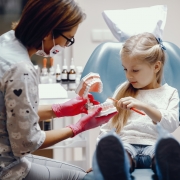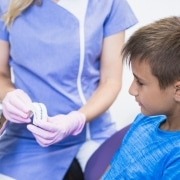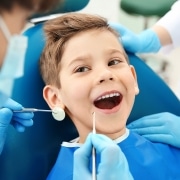Signs Your Child Has a Cavity
A cavity is a hole in the tooth enamel caused by a combination of bacteria and sugar in the mouth. Cavities can be painful, and if they’re not addressed as soon as possible, they can become very serious. If you think your child has a cavity, it’s important to make an appointment with the dentist in Owensboro and Beaver Dam, KY.
The first step is to recognize the problem. Below are signs that your child may have a cavity.
Signs Your Child Has a Cavity
If your child has a cavity, they may complain about pain or sensitivity in their teeth. Their teeth may become sensitive to heat, cold or sweet foods. In addition, you may notice changes in the appearance of their teeth.
Your child’s teeth may develop whiter than normal spots – these are signs that the tooth enamel is breaking down. When a cavity forms, you may be able to see a hole in your child’s tooth enamel. The cavity may also look like a brown spot or a black spot.
One more potential sign of a cavity: bad breath. Your child’s breath should smell better when they brush their teeth. If their teeth smell bad even after brushing, this could be a sign of excessive bacteria in the mouth.
Think Your Child Needs a Dentist? Make an Appointment
Don’t wait to make a dental appointment for your child. If your child is experiencing tooth sensitivity or pain, see the dentist as soon as possible. Your child’s dentist can prevent the problem from getting worse.
To avoid problems like this in the future, bring you child in for dental cleanings in Owensboro and Beaver Dam, KY every six months. Call Dr. Travis Wilson Family Dentistry today to make an appointment.







